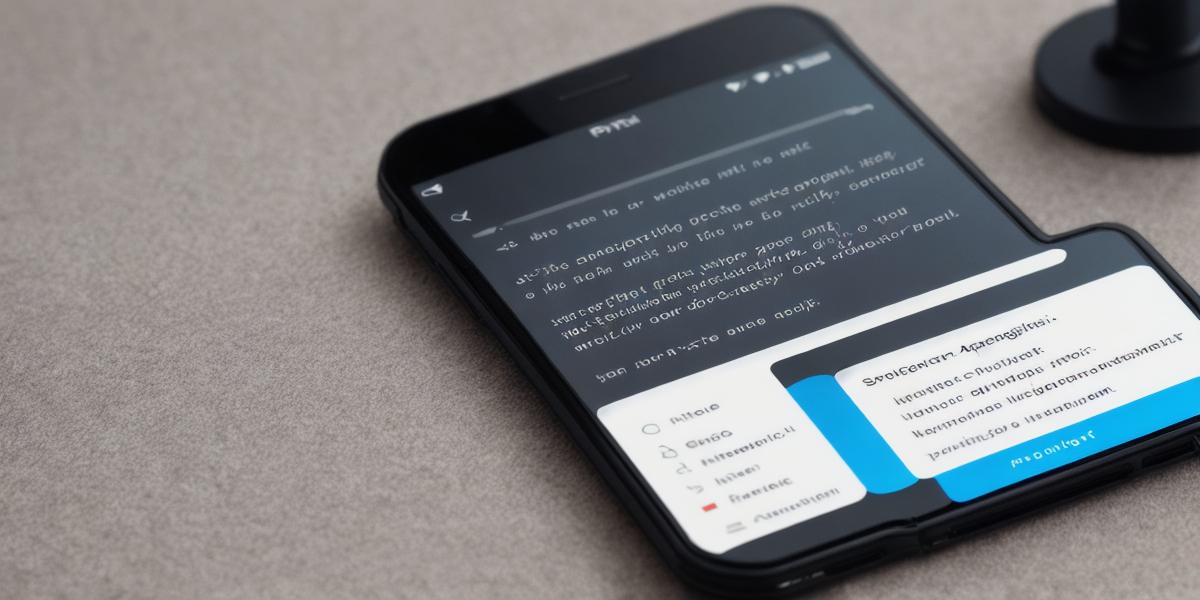Speech Recognition API: Empowering AI Developers with Conversational Computing Technology

As technology advances, conversational computing is becoming increasingly popular among businesses and consumers alike. Speech recognition API plays a critical role in this trend by enabling developers to create more intuitive and natural language interfaces for their applications. In this article, we’ll explore the benefits of speech recognition API, its use cases, and how it can help AI developers empower their users with cutting-edge technology.
What is Speech Recognition API?
Speech recognition API is a set of tools and services that allow developers to integrate voice-based functionality into their applications. It uses machine learning algorithms to translate spoken words into text, enabling users to interact with their devices through voice commands. With the increasing popularity of smart speakers, virtual assistants, and other conversational devices, speech recognition API has become a must-have tool for AI developers.
Benefits of Speech Recognition API
The benefits of speech recognition API are numerous, including:
- Improved user experience: Speech recognition API allows users to interact with their devices using natural language, making it easier and more intuitive to use. This can improve customer satisfaction and loyalty.
- Increased efficiency: By automating tasks that were previously performed manually, speech recognition API can save time and increase productivity. This is particularly useful in industries such as healthcare and manufacturing, where accuracy and speed are critical.
- Enhanced accessibility: Speech recognition API makes it easier for users with disabilities or those who have difficulty using traditional input methods to interact with devices.
- Improved language understanding: Speech recognition API uses machine learning algorithms to improve its accuracy over time, allowing it to better understand spoken language and reduce errors.
Use Cases of Speech Recognition API
Speech recognition API can be used in a variety of industries and applications, including:
- Voice assistants: Virtual assistants such as Siri, Alexa, and Google Assistant use speech recognition API to enable users to perform tasks through voice commands.
- Smart homes: Speech recognition API can be used to control smart devices such as thermostats, lights, and security systems using voice commands.
- Healthcare: Speech recognition API can be used to automate patient intake forms, medication reminders, and other administrative tasks, freeing up healthcare providers to focus on providing quality care.
- Manufacturing: Speech recognition API can be used to automate production processes, enabling manufacturers to increase efficiency and reduce costs.
Expert Opinions
According to Dr. John Haugeland, a professor of artificial intelligence at the University of California, Santa Barbara, "Speech recognition is one of the most promising technologies for improving human-computer interaction. It has the potential to revolutionize the way we interact with technology and make our lives easier and more convenient."
Real-life Examples
One example of speech recognition API in action is Amazon’s Alexa. Alexa uses speech recognition API to enable users to perform tasks such as ordering groceries, playing music, and controlling smart devices using voice commands. Another example is Google Assistant, which uses speech recognition API to provide users with information, schedule appointments, and control smart devices.
FAQs
- What industries use speech recognition API?
Speech recognition API can be used in a variety of industries including healthcare, manufacturing, retail, and hospitality. - How does speech recognition API work?
Speech recognition API uses machine learning algorithms to translate spoken words into text. - What are some real-life examples of speech recognition API in action?
Some real-life examples include Amazon’s Alexa, Google Assistant, and virtual assistants used in healthcare settings. - How does speech recognition API improve the user experience?
Speech recognition API improves the user experience by enabling users to interact with devices using natural language, making it easier and more intuitive to use.








